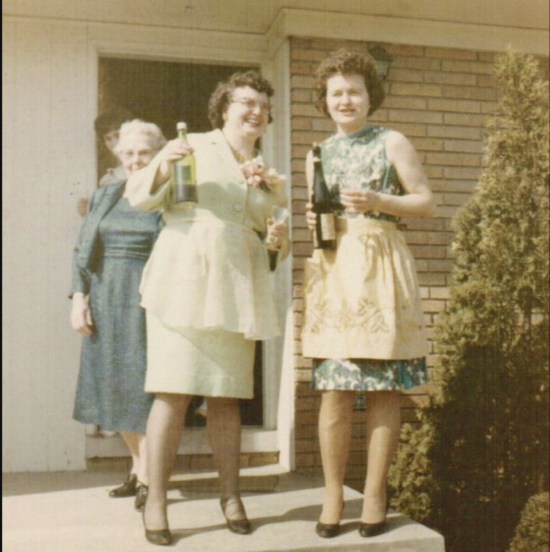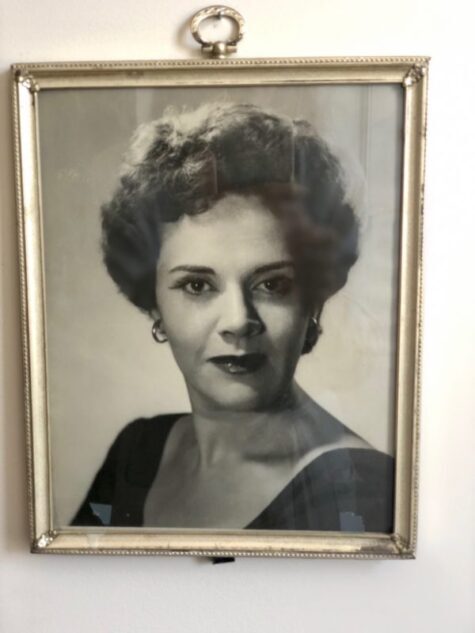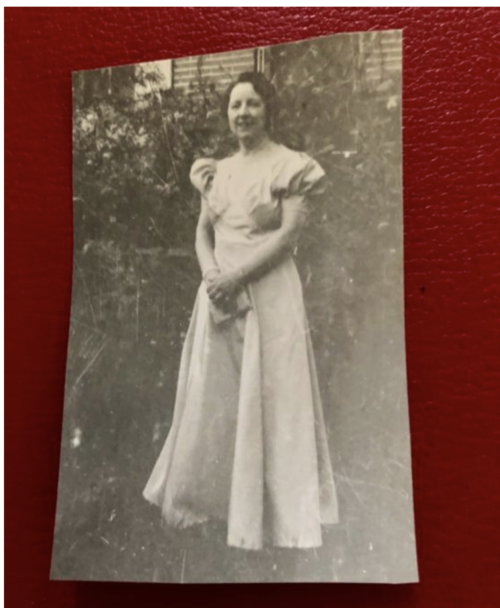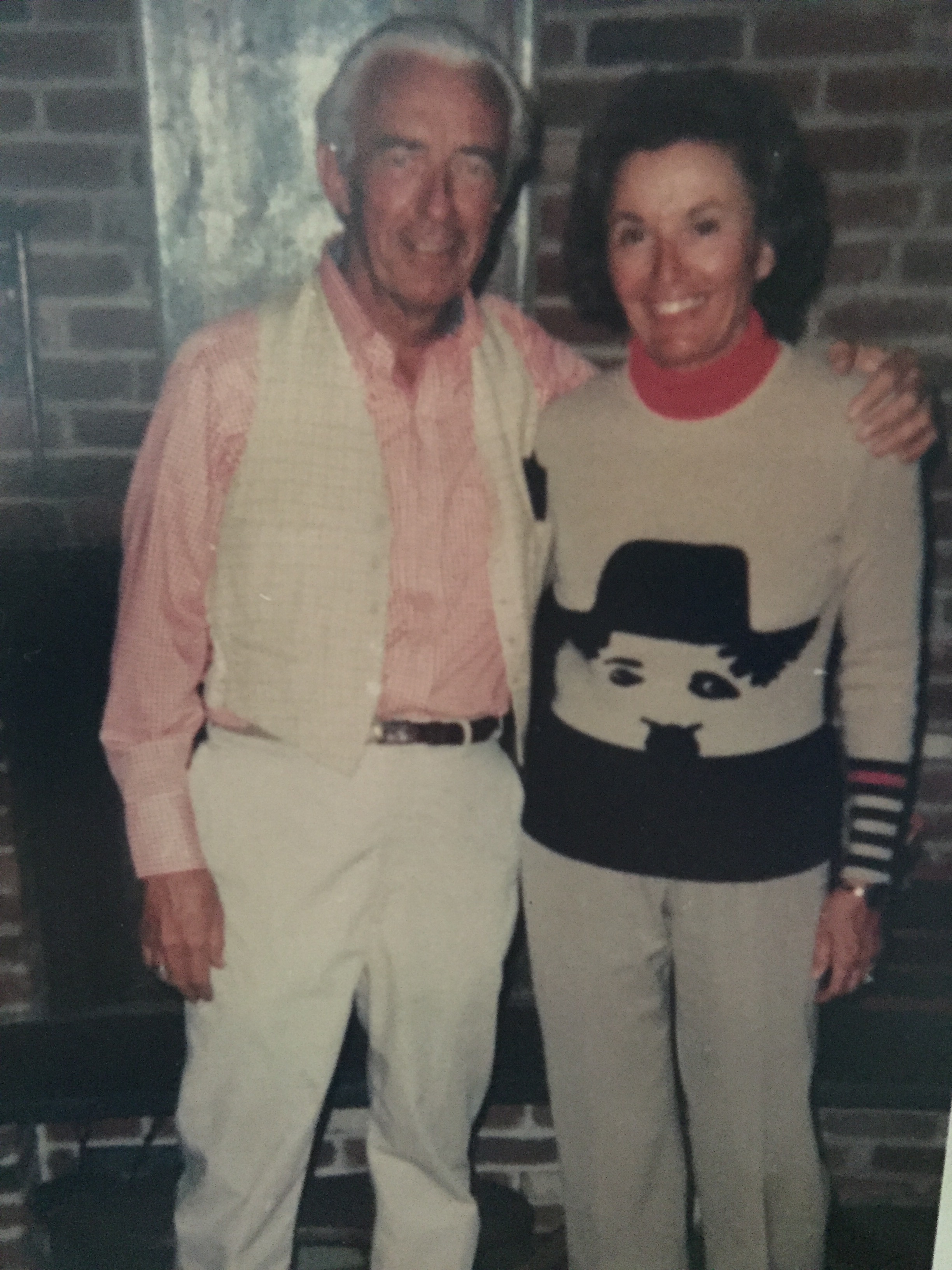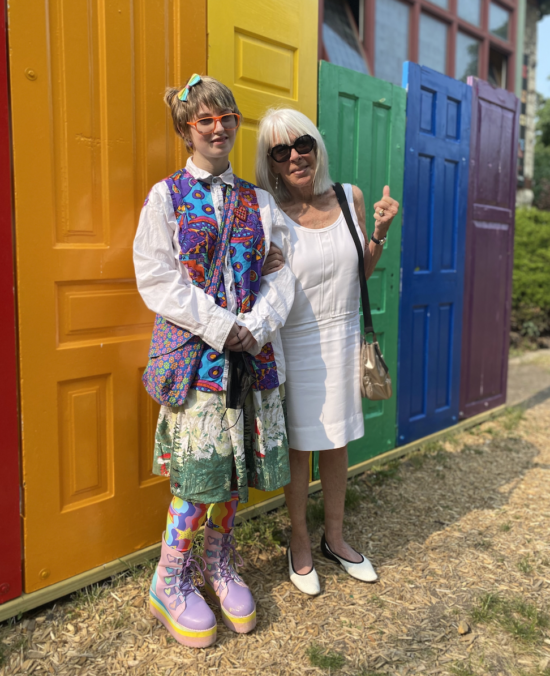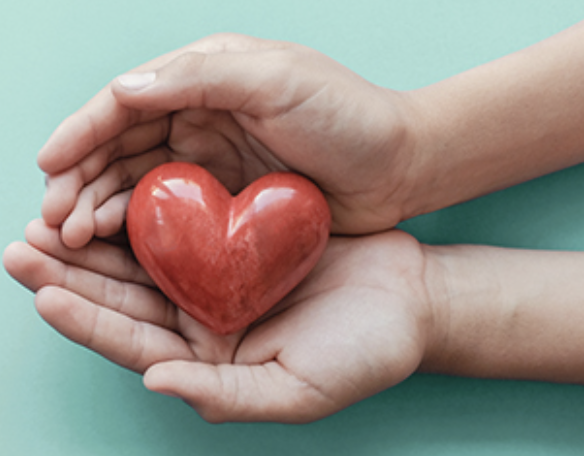I have friends who insist the women in their families didn’t provide examples of independence and/or positive aging. This observation can be skewed by the fact that our mothers and grandmothers didn’t live in our enlightened era where women are consciously aging with an awareness of ageism and sexism, and where the anti-aging industry floods us with products and advice to enhance our aging.
Just because our foremothers lived pre-feminism, doesn’t mean they didn’t find ways to exert their independence.
If you scratch the surface, you may be surprised to recognize how your foremothers challenged the culture, but in quieter ways than we do today. A careful examination may reveal strengths you’ve overlooked. To illustrate, let me take you on a journey with some of my foremothers.
My maternal great grandmother raised 10 children. Once the children got a little older, she made a practice of spending long Sunday afternoons in the attic painting.
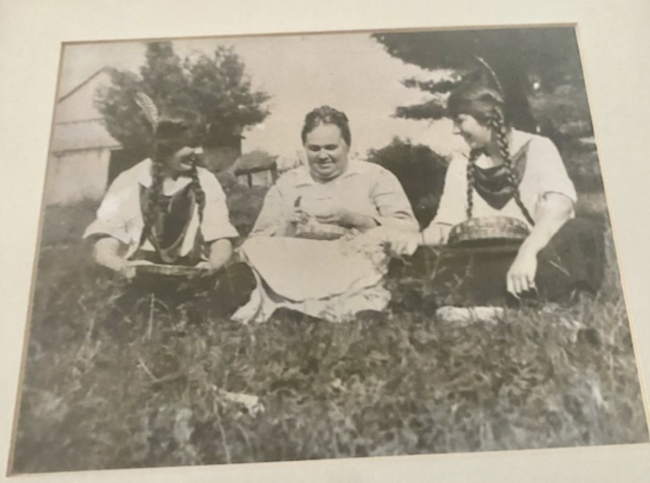
My maternal great grandmother with my grandmother on the right. Nana and her sister are dressed as “Girl Guides.”
Her daughter, my grandmother, was widowed at 58. Rather than cloistering herself, Nana went to work in a flower shop, and later as a restaurant hostess and had a long-term boyfriend, whom she outlived. Nana died at age 89.
A maternal aunt lived in Greenwich Village, working as a secretary to support her acting career. Esther turned down marriage proposals because she felt marriage and children would interrupt her acting aspirations.
Another aunt, married with three children, chaired the local Democratic organization. Anne was the only Democrat in an all-Republican family, challenging the men’s politics at family gatherings. Her spunky spirit inspired me.
My mother was a typical 50’s homemaker, but when her youngest child went off to college, she became a partner in an art gallery and later ran a successful antique store. When my father died, mother sold the family house to fulfill a long-time dream of living in a downtown apartment with a picturesque view of the river.
Two paternal great aunts swore off marriage for their careers—this was in the 30’s and ‘40’s. Nelle was a successful hat designer in her hometown of Harrisburg, Pa. Her sister, Kit, worked in the state capital, moving up the ranks to become a legislative assistant.
My unmarried relatives were frowned upon for not marrying. Nelle and Kit were referred to pejoratively as “the maidan aunts.” I was told that Esther was “selfish” for not wanting to have children.
When I became involved with Feminists’ second wave, it peaked my mother’s curiosity. She started standing up to my father and joined the board of Planned Parenthood, when it was considered something of a radical organization.
However, when I first started spewing feminist rhetoric, my mother admonished me for gone too far with my new feminist awakenings, worried it would turn off men. No doubt, it did, but when I developed a women’s radio show, my mother bragged to all her friends about it. I’m convinced, if she were alive today, we would be standing together for abortion rights and other feminist causes.
Every time I take a stand for women’s rights or encourage my granddaughter and other young women to use their voices, I can feel the ghosts of my foremothers smiling proudly. I am enlarging the courage they passed down. This is true for all of us.
I’m indebted to my foremothers for modeling an acceptance of aging. I rarely heard my mother, grandmother and aunts complain about getting old. While they struggled with the infirmities of aging bodies and losing a spouse, they had a solid sense of self that, for the most part, allowed them to age gracefully.
Please don’t write off your foremothers because they didn’t age with a 21st century awareness. Granted all of them may not have aged positively, but on close inspection, I think you’ll find foremothers who passed down courageous models. After all, none of us emerged like Phoenix from the ashes.
.
